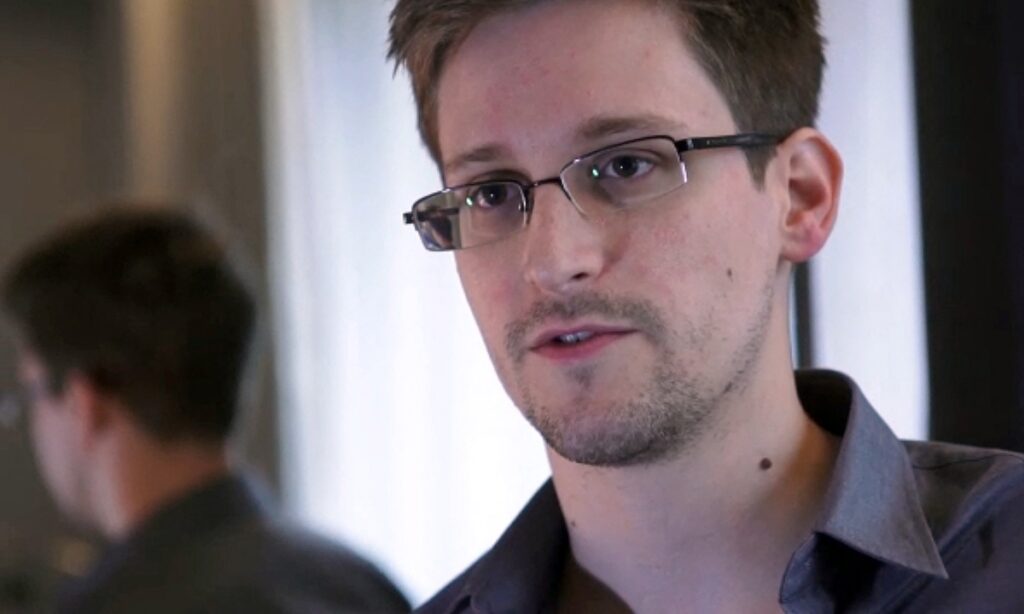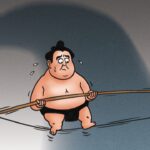Nearly a decade after whistleblower Edward Snowden exposed how the US government has built a massive surveillance apparatus to spy on Americans and people across the globe, US’ cyberattacks and surveillance activities overseas haven’t stopped.
Snowden was granted Russian citizenship on Monday. He has been living in Russia since 2013 to escape prosecution in the US after leaking secret files. The news once again sparked discussion around the cyberattacks and information theft committed by the US at home and abroad.
Snowden uncovered the shame of the US government in 2013, causing a global stir and exposing Washington’s rogue behavior to the rest of the world. The US government’s violation of the privacy of American citizens and the security, dignity and interests of other sovereign country is in stark contrast to its public statements in the international arena, dealing a heavy blow to US’ government’s image of self-proclaimed democracy, freedom and defense of human rights.
What’s worse, there is no sign that Washington will give up its global cyberattacks and surveillance activities.
In June, China’s Northwestern Polytechnical University (NPU) issued a statement indicating that a hacker group from outside China had attacked the university’s servers. And in September, an investigation revealed that the attack came from the US NSA’s Office of Tailored Access Operations (TAO), a cyber-warfare intelligence-gathering unit.
For a long time, the US has been using its superior technology in cyberspace to carry out relative attacks on other countries, completely ignoring the basic principles of a civilized society to maintain order, causing other countries to suffer.
Shen Yi, director of Research Institution for Global Cyberspace Governance at Fudan University, told the Global Times that the cyberattacks on NPU is not the first case, but the September investigation is the first time that evidence of US cyberattacks on China has been substantially demonstrated in such a detailed and reliable manner with publicly disclosed materials.
Apart from Snowden, there have been a number of whistleblowers persecuted in recent years for exposing US abuses in surveillance of domestic and foreign information, such as Julian Assange, the founder and director of global whistleblowing service WikiLeaks, whose extradition from the UK to the US has been approved.
This is despite the fact that the US has enacted what is known as The Whistleblower Protection Act, which is supposed to protect whistleblowers from retaliation for disclosing information that is believed to provide evidence of “a substantial and specific danger to public health or safety.” However, as one NSA official William Binney put it, if the US government gets ahold of Snowden, he might be “first tortured, then maybe even rendered and tortured and then incarcerated and then tried and incarcerated or even executed.”
A similar fate would befall Assange. In a previous interview with Assange’s brother Gabriel Shipton, he told the Global Times that he has no doubt that Assange “will die” if extradited to the US. This suggests that an ideal whistleblower is welcome in the US only in one situation – as a tool of US foreign policy, according to Shen. “When they harm the interests of Washington, they are no longer considered ‘whistleblowers’ who deserve protection.”
Snowden has lived in Russia for nearly a decade, and his acquisition of Russian citizenship demonstrates the level of mutual recognition he has reached with the Russian government. Besides, this is a good opportunity to show the world more about US bullying and hypocrisy against the backdrop of the protracted Russia-Ukraine conflict, and the complex game between Russia and the West.
Regardless of how the US and Western public opinion may hype it as a security and political event, Russia’s move is a humanitarian act to ensure the legitimate rights of a dissident in the eyes of US government and to guarantee that Snowden is not persecuted by US authoritarian behavior.
(Global Times)




